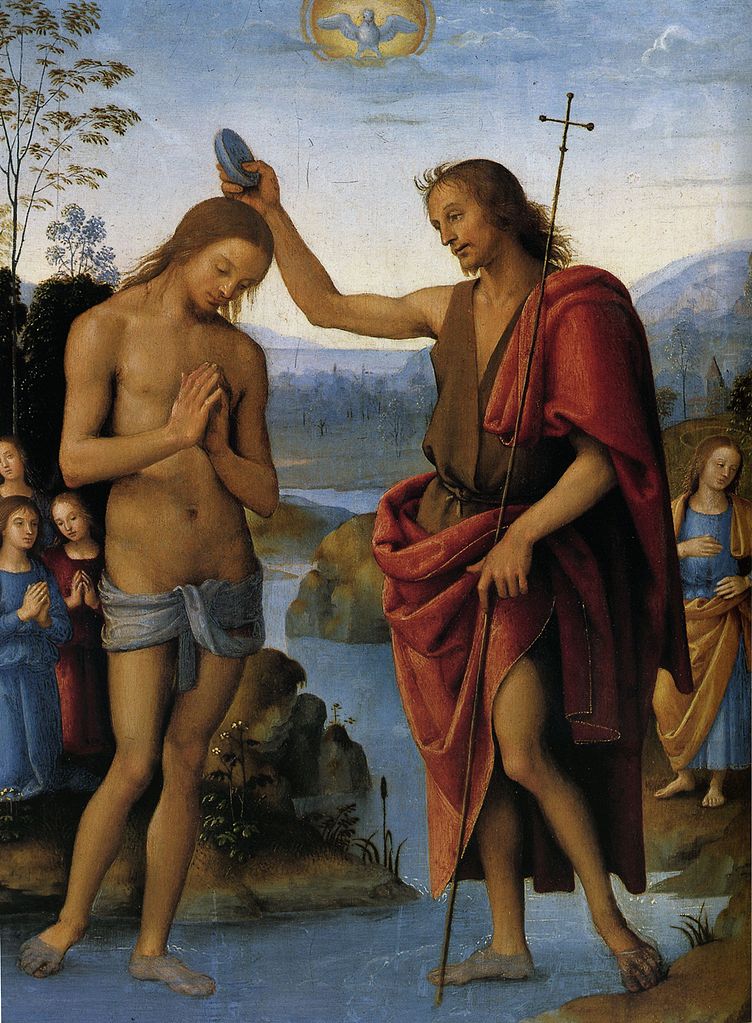Our life is marked by constant transitions: new jobs or retirement, new relationships, the loss of loved ones, moving to a new town, and more. We just celebrated the transition to a new calendar year and the whole Archdiocese will soon be going through a major transition in July, as we reconfigure all our parishes and the way that we worship and live out the faith in our hometowns. The Church’s liturgical calendar, which cycles through the mysteries of Christ in one year, reminds us that our spiritual life, too, is in transition. Today, on the feast of the Baptism of the Lord, we transition from the Christmas season back to ordinary time, counting the weeks between the two great feasts of Christmas and Easter. Most importantly, the Church’s calendar and liturgy help us to remember the great transitions, the most important transitions of our spiritual lives: the transition from creature to son or daughter of God; the transition from the “old man” bowed down by sin to the “new man” freed by the power of God’s grace to enter into Communion with the Blessed Trinity.
That’s what today’s feast of Christ’s baptism is all about: opening our heart up to life in Christ through the power of the sacraments. The Church has always lumped this feast together with the other great epiphanies (showing forth of the divine nature of Jesus Christ): the revelation to the shepherds in the field that the Son of God was born of Mary; the recognition by the wise men from the East that the Babe of Bethlehem was the Son of God and King of Kings; and later events in the life of Christ, such as the servants at the wedding of Cana seeing that Jesus was able to transform water into wine; and the Lord’s favorite Apostles seeing His face shine like the sun with Divine Glory at the Transfiguration. In God’s divine wisdom and plan, most of these epiphanies mentioned were very limited in who was able to see them – often literally just a handful of people or less! That lines up with the fact that in His divine wisdom, God knew that He would have to reveal His plan slowly while He still walked the earth: not everyone was ready to accept it. But after the Lord gave His mission to His Apostles at His Ascension into Heaven to go and teach all nations and baptize them in the name of the Father, the Son and the Holy Spirit – that all changed. Instead of revealing His divine presence to only a select few, He intended that all men would experience with their own senses the reality of God present among us, operating in our lives, and pouring out his divine help and grace.
That is what a sacrament is: some older parishioners may have memorized a definition like this one from the Baltimore catechism: “an outward sign instituted by Christ to give grace.” (Grace means the divine help from God to share in the life of the Holy Trinity.) The Church clarifies that the sacraments are more than just empty symbols, but that they are efficacious – that’s a fancy way of saying that they “get the job done” – they have a real power, rather than just serving as a reminder. That’s the “what” of the sacraments. The “why” and the “how” of the sacraments (again quoting the Baltimore Catechism) is this: “The Sacraments have been instituted as a special means through which we are to receive the grace merited for us by Christ. As Christ is the giver of the grace, He has the right to determine the manner in which it shall be given, and one who refuses to make use of the Sacraments will not receive God’s grace.” Powerful stuff. It reminds us that we can’t “mess” with the sacraments and change them. The Church is very careful to celebrate them as Christ gave them to us, to preserve the power He gives them.
When baptism makes us sons and daughters of God, adopted by His grace, it also cleanses us from the stain of original sin. That is, it robs the Devil of control of our destiny and re-establishes our bond to God that was destroyed by the sin of our first parents. When Christ was baptized in the River Jordan by St. John, He certainly did not need it for His own sake. He was, is and always will be the Son of God by nature and He knew no sin. But He chose in all humility to be baptized so that He could create the cleansing waters of baptism for us.
One of the interesting things about the sacramental signs is just how minimal they are: when, say, a baby has just a few drops of water poured over his head, that doesn’t look like much. But the reality behind the simple action is that the grace of God’s Holy Spirit floods over him like Niagara Falls! We need the outward signs of the sacraments – no matter how simple – to remind us of their tremendous power. God “speaks” to us through what we see, hear touch and even smell in the sacraments – much the same way as He did at the Jordan, when the onlookers saw the Holy Spirit descend like a dove and heard the voice from God the Father booming down: “You are my beloved Son; with You I am well pleased.”
May we always honor our baptism and do the will of Our Father in Heaven, so He will be pleased in us as well.
